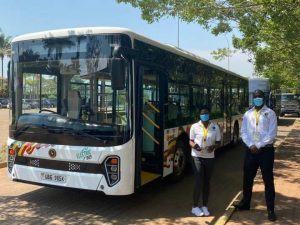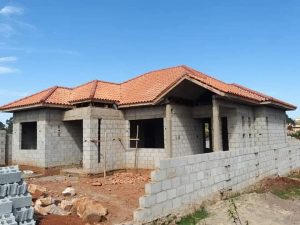
#OutToLunch: Make teaching sexy again
#OutToLunch: Make teaching sexy gain By Denis Jjuuko On a recent walk in the neighbourhood, my eyes locked with those of a hawker only that he looked very different from many of those I usually see. Medium built, walking with a little limp. His hair must have been darkened the previous day. He was wearing a long-sleeved cream shirt and a grey trouser that must have been part of a three-piece suit. His shirt was neatly tucked in. He must have been in his 50s. He looked like your former headmaster! In one hand, he was holding a handkerchief and the other a rack on which his merchandise were strewn. This perhaps explains his limping gait. The merchandise though – clothing pegs, under garments for ladies and such other things – must have been worth about Shs100,000. He calmly asked whether I could buy some pegs. Usually, Kampala’s hawkers are in their late teens or early 20s. He told me he used to a be a director of studies in some private school but due to the prolonged closure of schools due to the Covid-19 pandemic, he had fallen on hard times. When I got home, I cursed for not getting his contact and I haven’t seen him since. Anyway, last Tuesday was World Teachers Day. I thought of my own parents who are now retired teachers and whether they wouldn’t have been like this hawker had Covid-19 struck during their time. A teacher, slightly before my parents’ generation, was one of the most respected professions. Teachers of the day managed to live relatively well in decent housing and supported their large families. Although there are some teachers who are well off today, the majority simply eke a living and are one disaster away from hawking. BBG: The Supereffective Fitness Program You Need to Know buy turinabol Easy Chicken Pot Pie Soup – Anytime Fitness Recent efforts by government seem to be directed at only those who can teach sciences. I think salaries of teachers should be increased regardless of what they teach. When legendary entrepreneur Steve Jobs created Apple — the personal computer and smartphone behemoth, he credited its success to a calligraphy lesson he had accidently attended. Through that lesson, he was able to create a different product that was unique in design (and performance of course). So arts are as important as sciences. Teaching must be made sexy again so that it can attract young smart people. Payment is important. If the hawker I met in my neighbourhood succeeds in his new venture, he won’t return to the classroom. If any of his family members were thinking of becoming teachers, they won’t be able to do so. The image of their old man having worked for many years ending up hawking bras will be ingrained in their memory for ages. And the image won’t be rosy. Of course, you can argue that this man didn’t save enough or spent his money on stuff that were not important but we all know that teachers are some of the least paid people today. And apart from bars, no sector has been locked down for such a prolonged period like education. Many teachers who are now vendors of vegetables and used clothing will never teach again. A friend has indefinitely closed his primary school in Najjeera and sold off some of the buildings which are now being turned into condominium apartments for sale. Another who had started a nursery school has also closed it having made such huge losses. I don’t know about the enrolment of university students into education courses but I believe they aren’t very many. Yet, a report titled Secondary Education in Africa released by the Mastercard Foundation last August indicates that Sub Saharan Africa needs in excess of 10 million teachers (for secondary education alone) by 2030. At the rate teachers are joining other professions including hawking, the number is most likely to go up. At one stage, teachers were recording passengers for boda bodas for Covid-19 contact tracing. Imagine a boda man employing a teacher! If we don’t deliberately make teaching sexy again, young people won’t be enrolling for the profession in the numbers we need to make significant impact. For the majority of Africa’s young people, the easiest pathway to sustainable jobs is through education. We can talk about entrepreneurship but the people who have attained some level of education are more likely to create sustainable businesses than those who haven’t. If we don’t have enough highly trained and motivated teachers, young people will leave school without any skills that can help them sustain jobs or businesses. The World Teachers Day gives us time to rethink the teaching profession if we are to solve the challenges of this century. The writer is a communication and visibility consultant. djjuuko@gmail.com *This article was originally published on World Teachers Day 2021.





